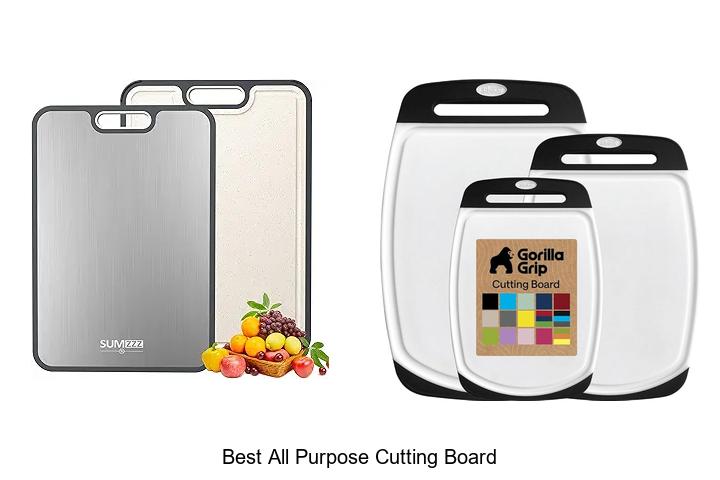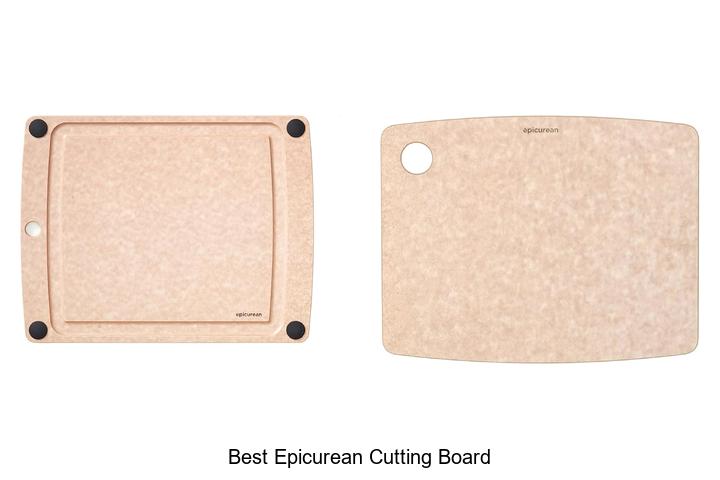Is Bamboo Good for Cutting Boards? Benefits & Drawbacks Explained
Choosing the right cutting board can make a big difference in your kitchen experience. Bamboo cutting boards have grown in popularity, but you might be wondering if they’re truly a good choice. With so many options out there, it’s important to understand what makes bamboo stand out.
You’ll want a cutting board that’s durable, easy to clean, and gentle on your knives. Bamboo offers unique benefits that could fit your needs perfectly. Let’s explore why bamboo might be the smart pick for your next cutting board.
Benefits of Bamboo Cutting Boards
Bamboo cutting boards offer several advantages that enhance your kitchen tasks. Their unique properties make them a practical and sustainable choice for food preparation.
Durability and Hardness
Bamboo is a dense grass with hardness levels higher than many hardwoods like maple or walnut. This density allows bamboo boards to resist deep knife marks, maintaining a smooth surface longer. You get a cutting board that withstands daily use without significant wear, reducing the need for frequent replacement.
Resistance to Moisture and Bacteria
Bamboo fibers naturally resist water absorption, preventing warping and cracking in high-moisture environments. This resistance limits bacterial growth, making bamboo boards safer for handling raw meats and vegetables. You benefit from easier cleaning and improved hygiene compared to boards made from more porous materials.
Eco-Friendliness and Sustainability
Bamboo grows rapidly—up to 35 inches per day—and can be harvested every 3 to 5 years without damaging the plant. This fast renewal rate makes bamboo one of the most sustainable materials for cutting boards. You contribute to environmental conservation by choosing bamboo, as it requires fewer resources and reduces deforestation impacts relative to traditional hardwoods.
Comparison with Other Cutting Board Materials
You evaluate cutting board materials based on durability, hygiene, and impact on knives. Bamboo offers distinct advantages compared to traditional options like wood and plastic.
Bamboo vs. Wood
Bamboo surpasses many hardwoods like maple and walnut in hardness and durability, resisting deep knife marks and surface wear longer. You benefit from bamboo’s natural moisture resistance, which reduces warping and cracking common in wooden boards. Bamboo’s dense grain limits bacteria absorption, improving food safety compared to some woods that can retain moisture. While wood is knife-friendly, bamboo performs similarly without compromising blade sharpness. Environmental sustainability favors bamboo since it regrows within 3 to 5 years, unlike hardwood trees which require decades.
Bamboo vs. Plastic
Bamboo cuts down on plastic use by providing a renewable alternative that’s biodegradable at the end of its lifecycle. Bamboo boards avoid the deep knife grooves plastic often develops, which can harbor bacteria and require frequent replacement. You find bamboo easier to sanitize since its surface resists moisture penetration better than plastic. Plastic boards generally resist staining and odors better, but bamboo’s natural antibacterial properties can offset these issues. Bamboo also offers a firmer cutting experience that maintains blade integrity longer than some soft plastics.
Potential Drawbacks of Bamboo Cutting Boards
Bamboo cutting boards offer many advantages but also come with some limitations you need to consider. Understanding these drawbacks helps you make an informed decision.
Maintenance and Care
Bamboo cutting boards require regular oiling to prevent drying and cracking, making maintenance more involved than with plastic boards. Avoid soaking your bamboo board in water or placing it in a dishwasher, as excessive moisture causes warping or splitting. Use mild soap and warm water for cleaning, then dry immediately to maintain longevity. Without consistent care, bamboo boards may develop surface cracks and lose their smooth finish.
Knife Blade Wear
Bamboo is harder and denser than many hardwoods, which means it can dull knife blades faster. If you use high-quality knives or need to maintain sharp edges frequently, bamboo boards may increase your knife sharpening routine. Choosing softer wood boards or plastic ones can reduce blade wear but may sacrifice bamboo’s durability and resistance to deep cuts.
How to Choose the Right Bamboo Cutting Board
Selecting the right bamboo cutting board impacts durability, maintenance, and performance in your kitchen. Focus on thickness, size, quality, and brand to find a board that fits your cooking style.
Thickness and Size Considerations
Opt for bamboo cutting boards between 1 to 1.5 inches thick to ensure stability and resistance to warping. Boards thinner than 1 inch may warp or crack faster, reducing lifespan. Choose sizes based on your kitchen space and chopping needs. Smaller boards around 8 x 10 inches suit quick prep tasks, while larger boards measuring 12 x 18 inches or more offer ample room for extensive cutting and slicing without overcrowding. Consider a reversible board for versatility if counter space is limited.
Quality and Brand Recommendations
Select bamboo cutting boards crafted from solid bamboo strips, not bamboo veneer layers, for better durability and knife-friendliness. Look for boards with smooth, tight grain patterns indicating high-quality bamboo processing. Choose brands known for sustainable sourcing and quality finishes, like Totally Bamboo or Bambu. These brands apply food-safe mineral oil and protective coatings to extend board life and maintain hygiene. Avoid boards with synthetic adhesives or uneven surfaces, as they degrade quicker and can harbor bacteria.
Conclusion
Choosing bamboo for your cutting board brings a blend of durability, hygiene, and eco-friendliness that few other materials can match. It’s a smart pick if you want a sturdy surface that stands up to daily use while supporting sustainable practices.
Keep in mind the maintenance needs to keep your board in top shape and be prepared for a bit more knife sharpening. With the right care and selection, bamboo cutting boards can become a reliable and attractive part of your kitchen routine.



